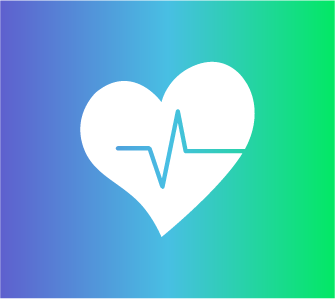When you’re sick or injured, you only want to focus on getting better. Honestly, you would probably never second guess your doctor’s credentials. Your hospital or the clinic where they work should have done that long ago, right?
Even though you rarely, if ever, think about it, credential gathering is a crucial step in getting a doctor admitted to a hospital or a practice. It verifies their training, that they have the necessary hours in the discipline that they specialize in, and that they are competent to practice medicine.
What does credential gathering mean?
Far more goes into being a licensed doctor than you probably consider. Even for a family practice doctor, they would need:
- 4 years of college
- Passing their MCAT
- 4 more years of medical school
- Passing scores on 3 separate knowledge and skills examinations
- 4+ years of residency
- Even more optional training, depending on if they want to specialize further (in cardiology, for instance)
On top of all of this, many physicians will write papers, do research, and involve themselves even more deeply in the discipline of their choice. All of this information is available, and it weaves a tapestry that indicates the skill and education level of your doctor. Getting it all together, however, can be a lengthy process, and improving physician credentialing is an important matter.
Paper trails
For the most part, colleges, hospitals, and clinics all keep paper records in filing systems, pulling them out to scan and fax them when needed. This opens up a slew of potential problems in the credentialing process:
- The person handling the files could miss some, leaving out crucial information on behavior, past performance, or additional experience that would be beneficial
- Faxes can be temperamental and only send parts of the total needed information, which can slow the process down dramatically
- Human error and sending the wrong information happens.
When the physician credentialing process is done on paper, gathering key data from different offices, libraries, and paper stacks, the room for error is huge. There has to be a newer, better way going forward for both doctors and service providers, and that path is electronic physician credentialing.
What is electronic credentialing?
Electronic credentialing gathers up all of the information from college to sub-specialties for your doctor and puts them in a large, secure database. Any provider that wants to get credentials before hiring a physician can gain access to the online database and look up the physician they want to hire. The biggest benefits of electronic credentialing are as follows:
Ease of access
Being able to pay a fee to an online verification service or telehealth platform and have full access to physician’s records and work history is far faster and easier than going through the traditional process. The standard, paper-driven method would require you to independently verify each step in the doctor’s work history, calling hospitals and colleges, or paying a service to do it for you. At the end of the day, both paths require a lengthy, manual process.
By using an online verification system, you have immediate access to not just the doctor’s education, but also their work history and possibly even performance reports. Additionally, you can see anything they’ve done in the past that relates to the job—research, writing papers, collaborating on drug trials, and so on.
Reliable verification
Whether a doctor means to or not, sometimes they provide false, misleading, or incomplete information. While the vast majority of these situations are accidental, or the result of human error, they still need to be verified regardless. This opens up another possibility for human error as well: if the person tasked with verifying this information is having an off-day or simply slips up, you can get critically important information wrong.
Electronic verification has multiple layers of safeguards that clearly confirm a doctor’s statements, work history, and everything else in their CV. It stores this information—and the verification method and dates—on their servers where it’s readily accessible.
These electronic records are also constantly updated and continuously verified, ensuring that hospital privileges, credentials, certifications, continuing education credits, and licenses are always reflected in their most recent status. This is important because it’s possible that paper records are not updated as regularly as they need to be, and if a doctor loses a license or credential, it might go missed for years. Electronic verification makes that virtually impossible.
ViTel can help
Telehealth solutions are growing across the country, giving doctors and patients better access, cleaner records, and improved outcomes. Our streamlined online verification and credential gathering platform provides clear, concise assessments and accurate data, and puts it all at your fingertips.
Physician credential assessment is only one part of how ViTel Health’s telemed platform can improve every aspect of your telehealth practice. Better for the physician, better for your telehealth practice, and better for patients, contact us today to see how ViTel Health is changing the face of patient care.







